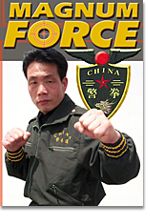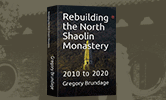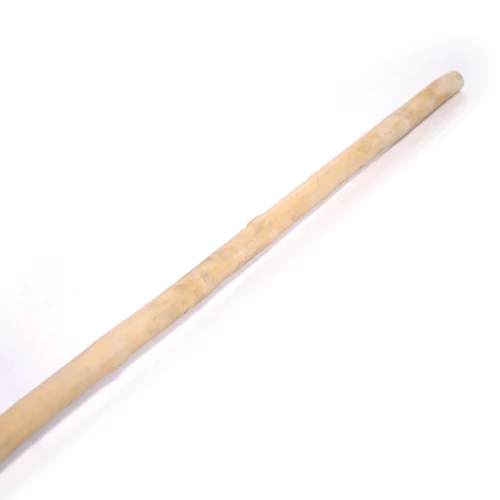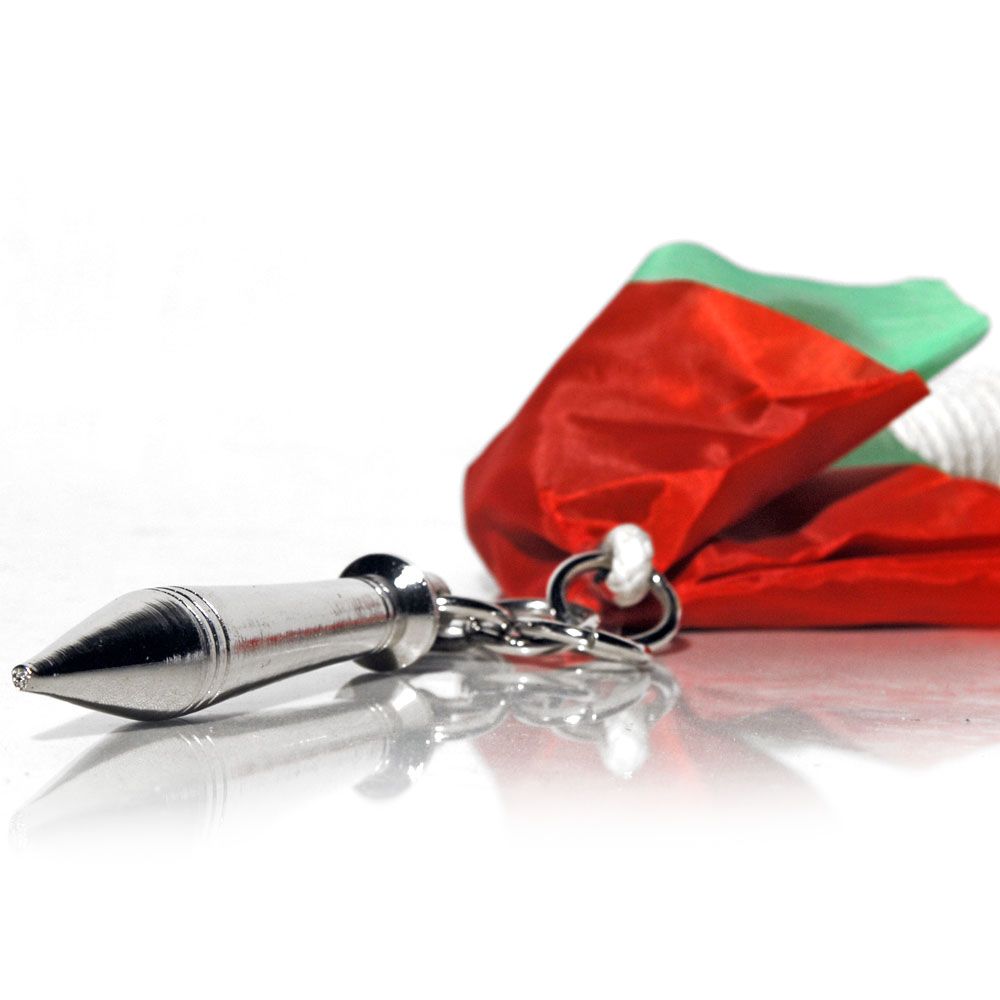Meet Grandmaster Alexander Tao, Founder of China's Police Combat Method, Jing Quan Dao
By Gene Ching
 Meet Grandmaster Alexander Tao, Founder of China's Police Combat Method, Jing Quan Dao
Meet Grandmaster Alexander Tao, Founder of China's Police Combat Method, Jing Quan Dao
By Gene Ching
Americans have no idea what it is like to be a cop in China. No idea at all. It's not like here - no high-tech squad cars packing state-of-the-art computer systems. In China, cops are lucky to get a bicycle. Nor is it like Tiananmen Square, targeting unarmed civilians with guns and tanks. That was a military action. Most Chinese cops don't even carry guns. What's more, almost everyone in China practices martial arts, especially the criminals. So to be a cop in China, you've really got to know how to fight, hand-to-hand and toe-to-toe, and fight well. Your body is your only weapon and your life is at stake. At any moment, you must face advanced fighters trained in some of the most of time-tested combat methods in the world, the deadly arts of kungfu.
Strangely, Westerners regularly overlook kungfu's combat professionals. The flowery forms, the ancient arms, the padded sport of sparring, and the exaggerated choreography in movies completely overshadow the working men and women who train kungfu as part of their job. These are the enforcement officers of Red China - the military, special forces, security and police. Their interest in kungfu is entirely practical. No thoughts of looking pretty or winning medals. Just get the job done. Enforce law and order over the most populated nation in the world.
To be a cop is to heed the call to serve your community. In China, a major reason to study kungfu is to protect the country and its people. The basic desire of all true kungfu practitioners is to bring evildoers to justice. When Alexander Tao was just a boy, he dreamed of being such a hero. Following that dream forged him into one of the world's most powerful police combat instructors.
From the Marsh to the Mountains
Grandmaster Tao (Chinese name: Tao Zhong Xian) grew up in Shandong province, in northern China. This region is famous for kungfu. One of China's most famous martial epics, fictionalized in the novel Outlaws of the Marsh, took place here centuries ago. Outlaws of the Marsh is the true, yet romanticized story of a rebel brotherhood and their fight against a tyrant empire. Like Robin Hood in Sherwood Forest, these "outlaws" hid in a marsh near Liangshan as they fought for freedom. Studying kungfu near Liangshan Marsh was a bit like studying archery near Sherwood. There is a powerful legacy at the core of this community, a tradition of bold warriors. Many fighting styles were born here, such as the vicious strikes of praying mantis kungfu and the tortuous techniques of Ba Gua.
Like most Liangshan natives, Tao's was a martial family with a long warrior tradition passed down for generations. From childhood, Tao diligently studied local fighting strategies and tactics, mastering each killing method he was taught with utmost precision, until he reached his next level of the discipline. Like the ancient warriors of old, his quest for wisdom took him deep into the mystic mountains to study the methods of the martial monks.
Tao spent several years at Shaolin Temple, the birthplace of the Chinese martial art of kungfu. Surrounding this venerated temple are many private martial arts schools that are overseen by monks, ex-monks and martial disciples, all experts in the arts of war. At one such school, Tao studied the traditional fighting arts and quickly earned a position on the school's crack demonstration team. There, he won many honors, becoming the Vice General Coach for China's Shaolin Kungfu Monks and receiving the Shaolin layman disciple name Xing Dong.
Tao also became adept at channeling his internal power with the esoteric practice of qigong. He learned to break boards with his body and bricks with his hands and feet. He could even break free standing bricks, not braced by a stand or someone holding it. This is far more difficult since there is nothing to prevent the brick from simply falling over when struck. Only a top-notch heavy hitter can break a brick this way. Additionally, he concentrated on the ancient ways of qigong power - invulnerability skills such as iron shirt, iron head and iron leg, coupled with intense striking techniques such as black palm, eagle claw and two-finger chan.
But his study of kungfu did not end there. Tao took his quest even further, journeying deeper to the mysterious mountain of Wudang. Also known as Wu-Tang, this quixotic place is known for devastating fighting arts and its deadly warrior-scholar priests. It was here, according to one theory, that the transcendental art of tai chi chuan was born. Tao studied martial arts at Wudang for a few more years, honing his already phenomenal skills to lethal efficiency.
The Shadow of the Dragon
Despite his upbringing in the lands of legendary heroes of China, Tao's martial role model is not who you would expect. It wasn't a classic champion from Outlaws of the Marsh like Li Kwei or Wu Song, nor was it the Shaolin monk Jin Na Luo or the Wudang Priest Chang San Feng. It was someone who inspired more kungfu aficionados in our time than anyone else. It was Bruce Lee.
Bruce Lee's method and philosophy profoundly impressed Tao, in particular Lee's invention of the fighting art of Jeet Kune Do. Tao even specialized in Lee's signature weapon, the nunchaku. Assiduously following Lee's philosophy, Tao absorbed the most useful techniques of his extensive training, compressing it all into his own highly effective combat system. But he had a deeper understanding of Lee than many so-called Lee followers did. Instead of blindly following Jeet Kune Do (which Lee clearly condemned) Tao created his own new system, Jing Quan Dao. Quan Dao is the mandarin translation of Lee's Cantonese Kune Do. It means "fist way." Jing means "alert" instead of jeet (meaning "intercepting.") Jing can also mean "Police."
Many masters create their own style, but only a few ever get official recognition from the People's Republic of China. This is a rare honor. Since possessing guns is prohibited in China, kungfu is the only means of self-defense for the general public. More people practice martial arts in China than anywhere else in the world. Unlike here, it is far greater than just a weeknight pastime. Kungfu is a way of life for millions of Chinese citizens. So any new style that excels enough to stand above the masses and be recognized is truly exceptional. Jing Quan Dao was founded by Grandmaster Tao in 1995. It was just one of many amazing achievements of this master of the martial arts.
A Hero on the March
Amongst warriors, nothing speaks louder than action. And in the martial arts, validity is earned through being battle tested. Tao captured the national free sparring championship twice in China and twice internationally. He also broke the Guinness Book of World Records twice demonstrating his unique qigong skill, two-finger chan. Two-finger chan is a rare qigong from Shaolin Temple. Chan is the Chinese word for Zen, revealing the intense discipline and mental concentration behind this skill. All of your internal energy is focused into your fingertips. When mastered, you have the power to perform a handstand using only two fingers. You also have the power to pop your finger through an enemy's skin to penetrate the internal organs of the human body. Such graphic illustrations are too intense for the Guinness Book. So instead, Grandmaster Tao demonstrated his power by pressing several bricks against a wall, suspending them up with only one of his fingers. His record now stands at thirteen bricks, each five centimeters thick, suspended for 23 seconds.
Tao's prowess in qigong earned him the title of Senior Researcher of the Chinese Qigong Academy, but it was his practical approach to real street combat, police self-defense and military warfare which established his reputation. The no holds barred philosophy of Jing Quan Dao is based on being faster, longer, harder and more alert than your opponent is. Overcome your enemy using maximum force. And it is proven in the battlefield, time and time again. Tao has implemented Jing Quan Dao throughout China's law enforcement and military. He has held many important positions as a combat trainer, including General Coach of the Chinese Special Corp. This elite military group specializes in the highest level of security and rescue techniques in China.
China Central Television (CCTV) has one of the largest audiences in the world, with about 600,000,000 viewers. Even with the overwhelming number of kungfu experts in China, CCTV chose to cover Grandmaster Tao in multiple documentaries since his contribution to the arts was so outstanding. These programs included The World Legend Man, A Spark of Chinese Kungfu, Finest Kungfu - Jing Quan Dao, and Tao Zhong Xian & Jing Quan Dao. In another program, CCTV produced an 18-episode instructional TV series to reveal Tao's combat tactics of Chinese police to the public. Practical Attacking with Jing Quan Dao received a wide range of endorsement and high commendations from the martial arts world. The brutal fighting techniques contained in this series would have never cleared American TV. Even the qigong demonstrations are graphic. In one quick segment, a demonstrator is upside-down in a headstand with legs spread apart and a wood pole is broken over his crotch!
Today, Tao has come to the San Francisco Bay Area, bringing the art of Jing Quan Dao to American shores. The grandmaster has begun teaching modestly, as all start-up schools must, mostly to Mandarin speaking students since he has yet to learn English. However, his impressive skills shine within the martial circles. K-1 Middle Weight Sanshou Champion and 4-time National Sanshou Champion Cung Le immediately recognized Tao's ability and hired him as a guest instructor at his kickboxing school. There is no doubt that Tao will have a profound impact upon the American martial arts world. Now, his CCTV series on combat tactics has been translated into English and is available in American video format. Gangsters and lawbreakers beware! There's a new cop on the beat, and he's going to bust you like never before. ?
Click here for Feature Articles from this issue and others published in
2001 .
About
Gene Ching :
Grandmaster Tao can be reached via e-mail: jqd88@Yahoo.com or through Golden Sun 510-742-1328 pager 408-308-8250
![]() Print Friendly Version of This Article
Print Friendly Version of This Article
















